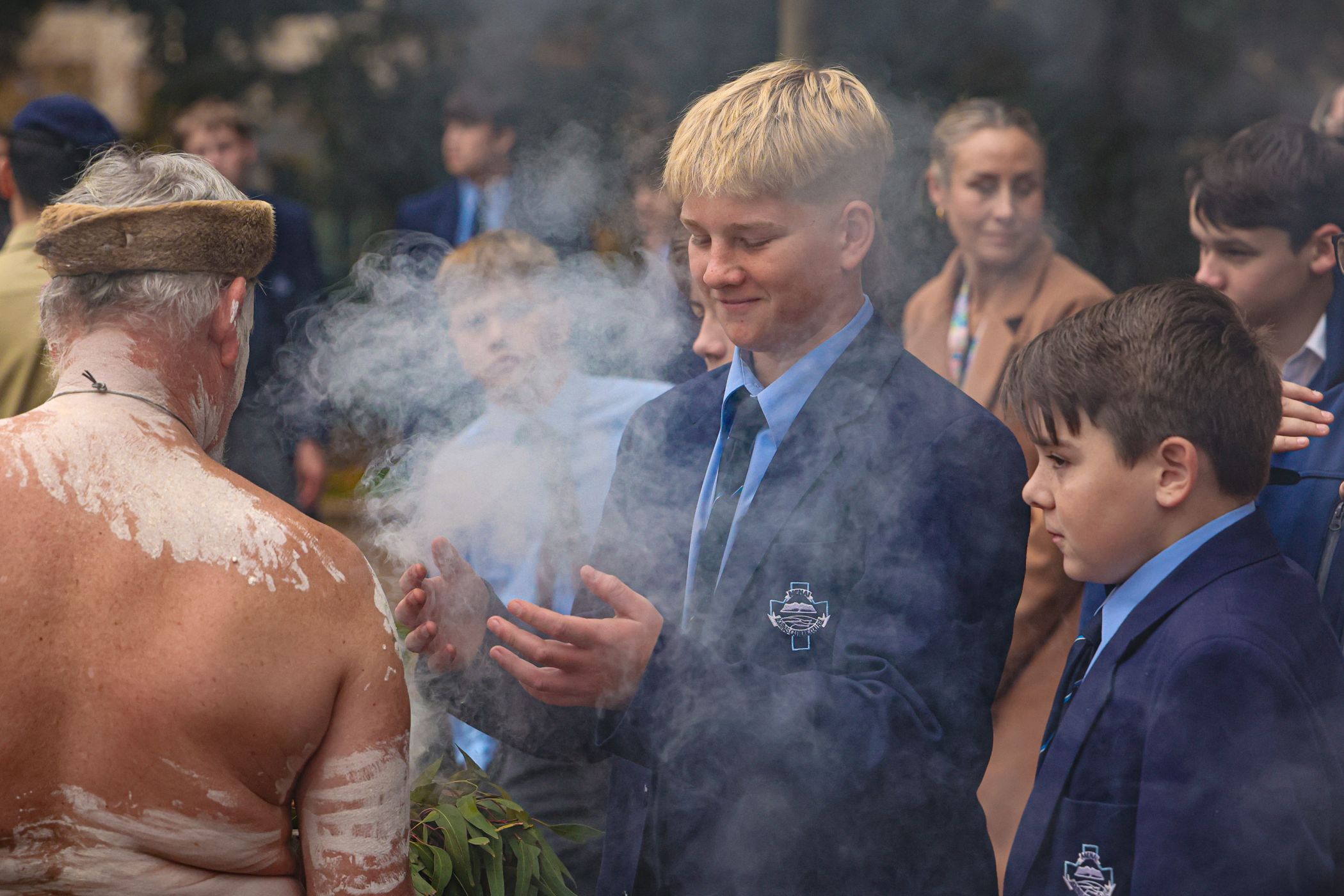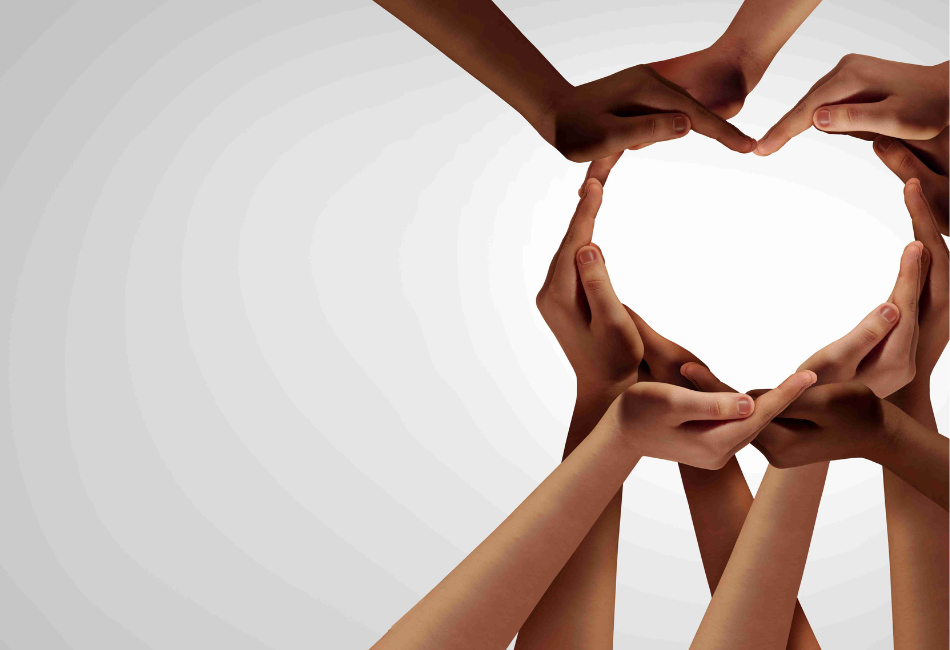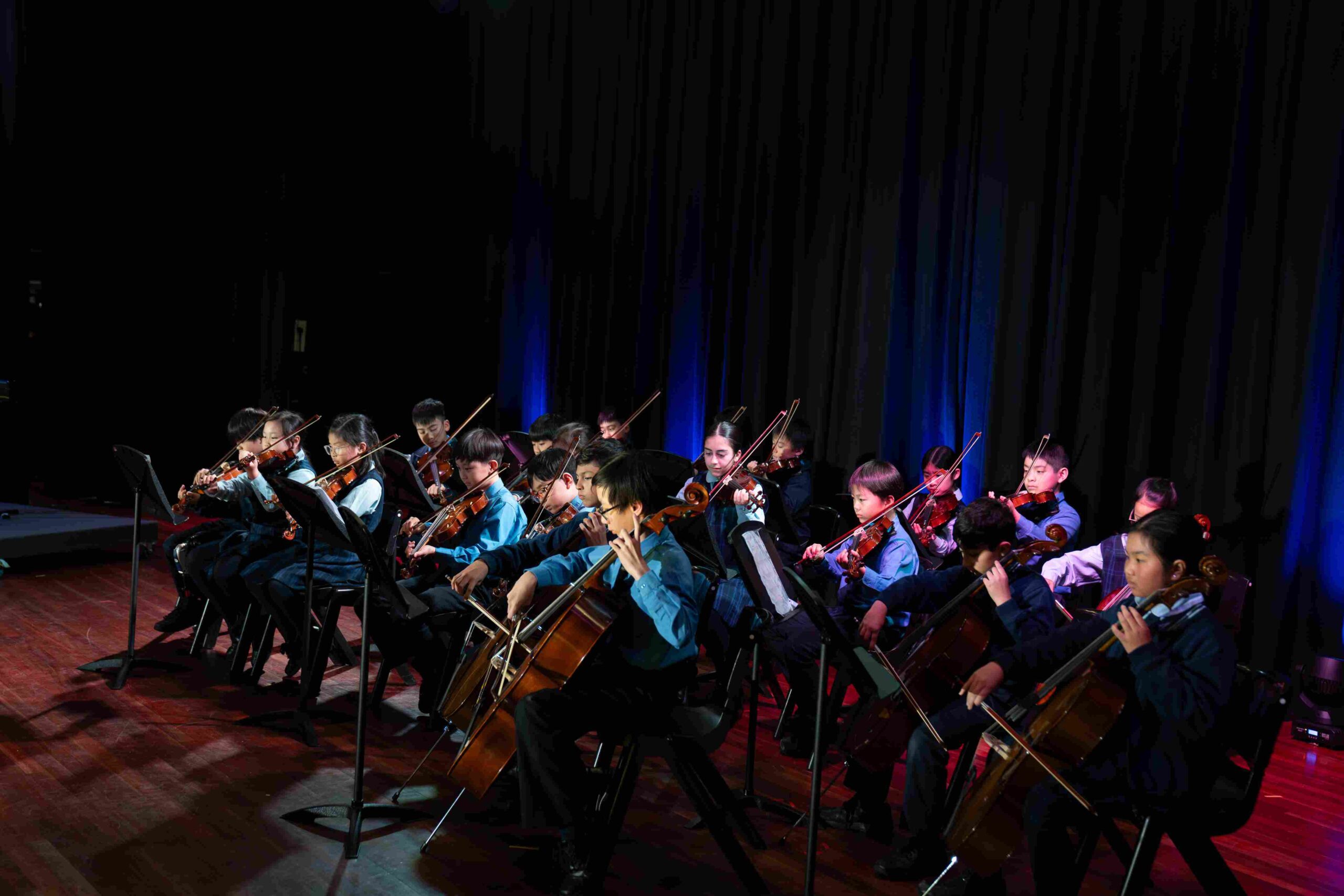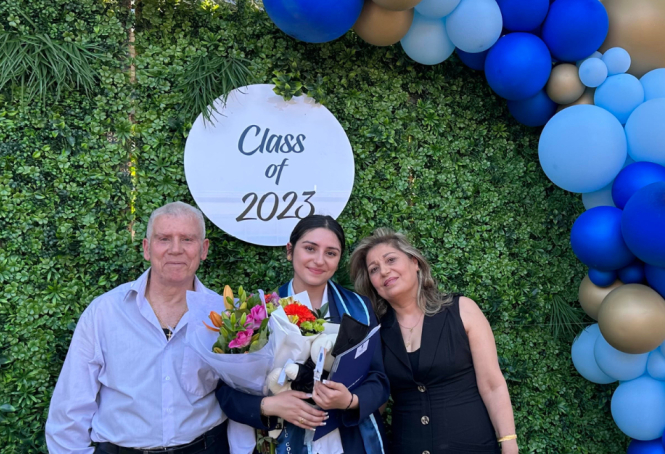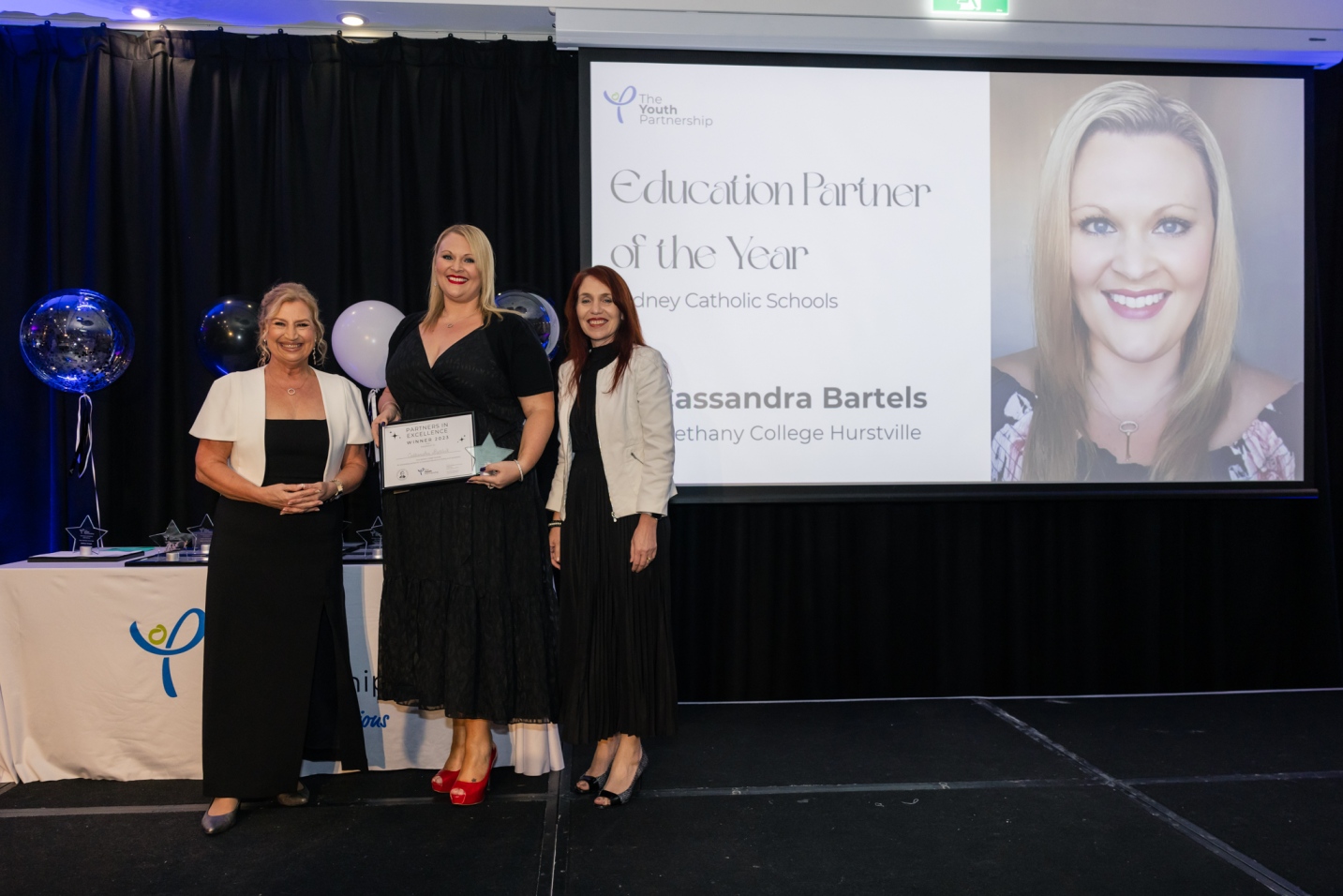In 1942, Leonard ‘Len’ Waters, a proud Kamilaroi (Gamilaraay) man, found himself at the crossroads of history as Japan entered World War II, with the threat of invasion looming ever closer to Australian shores.
Responding to the urgent call of the Royal Australian Air Force (RAAF) for recruits, Waters and his brother, Jim, volunteered for service at No. 3 Recruiting Centre in Brisbane in August 1942.
Undeterred by his limited formal education, Waters began training as a pilot in 1943, determined to prove himself. By July 1944, his hard work paid off as he received his RAAF pilot’s wings and was promoted to sergeant, becoming Australia’s first-ever Indigenous fighter pilot.
Waters flew an impressive 95 missions in his Kittyhawk, Black Magic, logging 103 flying hours. After the war, he left the Air Force, married his fiancée, and returned to shearing, never to fly again.
In a heartfelt tribute to the bravery of individuals like Waters, students from across Sydney Catholic Schools (SCS) gathered at the Anzac Memorial in Hyde Park to honour the service and sacrifice of Aboriginal and Torres Strait Islander veterans.
Through our Goodjarga Aboriginal and Torres Strait Performing Arts program, more than 50 Aboriginal students from six schools represented SCS, delivering a moving rendition of the National Anthem in both Dharawal and English.
A further six students from St Mary’s Cathedral College Sydney embraced the prestigious role of flag bearers for the ceremony, selected for their outstanding dedication and leadership within their school community.
This year, 18 Sydney Catholic Schools attended the ceremony, each laying a beautiful wreath at the Hyde Park Pool of Reflection to honour the service of First Nations’ men and women, both past and present.
SCS Supervisor for Student Wellbeing Aboriginal and Torres Strait Islanders, Jane Bridges OAM, leads a dedicated team of six Aboriginal members who support student wellbeing and collaborate with First Nations community organisations and families.
“This marks the 18th consecutive year that SCS has taken part in the ceremony. Our involvement is part of a range of specific initiatives we have in place to support First Nations students, Ms Jane Bridges said.
“These include our Catholic Education Foundation Indigenous Bursary Program, personalised learning programs, and close collaboration with community partnerships such as KARI Australia and NRL School to Work” in conjunction with SCS Student Wellbeing Aboriginal and Torres Strait Islander Community and Student Wellbeing Officers.
The service coincides with National Reconciliation Week, a time for all Australians to learn about our shared histories, cultures, and achievements.
SCS Interim Executive Director, Peter Turner, attended the ceremony, laying a wreath on behalf of all students and staff from our 147 schools. Mr Turner emphasised that National Reconciliation Week serves as a vital reminder to continue advocating for justice and the rights of Aboriginal and Torres Strait Islander peoples.
“SCS continues to progress a Reconciliation Action Plan which is committed to building relationships, fostering respect, and providing opportunities for Aboriginal and Torres Strait Islander peoples,” Mr Peter Turner said.
“I pray that during Reconciliation Week and beyond, we continue to deepen our interest in, and understanding of, Aboriginal and Torres Strait Islander peoples and the enduring existence of their culture, customs and practices”.
Today, the legacy of Aboriginal and Torres Strait Islander veterans like Waters lives on through the continued service and dedication of Australians, including our students, inspiring future generations to honour and uphold their proud heritage.
Aboriginal and Torres Strait Islander Veterans
Since the Boer War, Aboriginal and Torres Strait Islanders have been actively involved in serving Australia. Historical records indicate that at least 1,000 First Nation peoples participated in the First World War.
Estimates suggest that around 3,000 Indigenous Australians served in the Second World War. Remarkably, in proportion to their population, no other Australian community contributed more to the war effort than the Torres Strait Islander people.
In the years following the Second World War, Aboriginal and Torres Strait Islander peoples continued their service in Korea, Malaya, Borneo, and Vietnam.
Today, Aboriginal and Torres Strait Islander peoples proudly serve in all branches of the Australian Defence Force, continuing their long tradition of military involvement.

